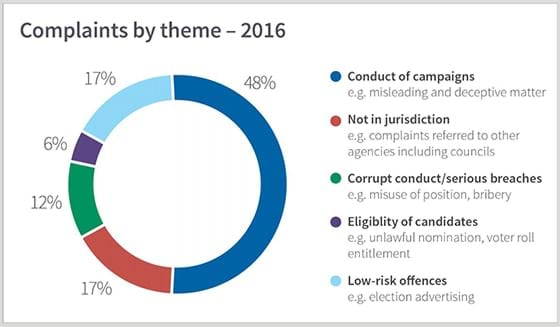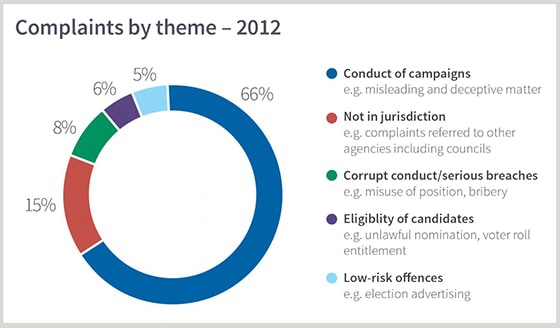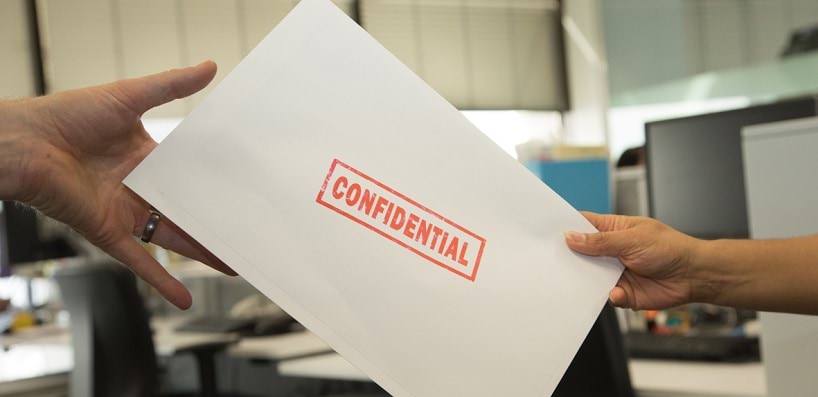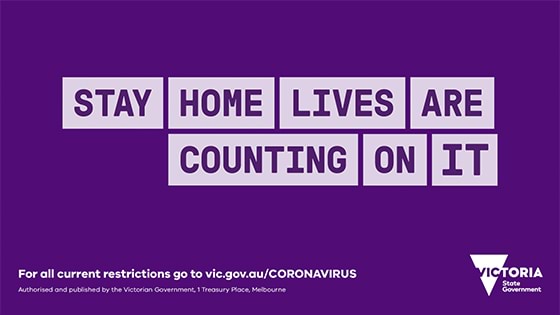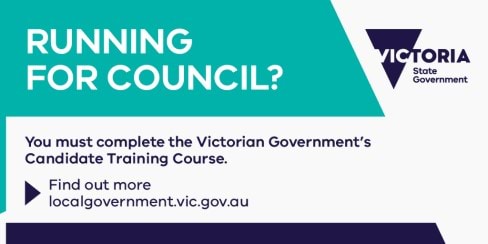- Date:
- 30 July 2020
Welcome to our winter 2020 edition of integrity matters. In this edition, we look at issues such as how complaints data can inform our elections work, the rules around disclosing confidential information to my office and mandatory candidate training.
Dealing with COVID-19 continues to prove challenging and my team wishes to repeat our appreciation for the understanding and assistance from the sector as we proceed with our investigations, examinations and complaints assessment. Complaints and enquiries can continue to be made through our website and by email, as a preferred option to mail or phone enquiries.
I am pleased to welcome the new Minister for Local Government, the Hon. Shaun Leane MLC, who was appointed following changes to Cabinet in May. We look forward to discussing the local government sector and our work with the Minister.
Also following the machinery of government changes this year, the Inspectorate is now under the jurisdiction of the Attorney General, rather than the Special Minister of State. This will not alter our independence from government or our commitment to providing advice and recommendations to improve the local government sector in Victoria.
While I anticipated being in the acting CMI role for a limited period, the disruption to the recruitment process for the ongoing position due to COVID-19 has extended my stay in the role. The role was recently advertised and the Department of Justice and Community Safety is currently going through a recruitment process. We will keep you advised of further developments.
Dr John Lynch PSM
Acting Chief Municipal Inspector
Using complaints data to inform our 2020 council elections work
With elections due to be held for most Victorian councils in October, the Inspectorate has taken a look back at trends and recurring issues from the 2012 and 2016 general elections to inform our work during the 2020 election period.
Reviewing data for the past two elections can identify:
- common misconceptions about the legislation
- trends in low risk breaches
- possible integrity risks
- prior or repeat offenders
Using this prior experience and knowledge to focus preventative work on people and problems that represent the highest degree of risk helps make the best use of Inspectorate resources.
2016 elections
The 2016 elections saw 2135 candidates nominating for 637 vacancies. During this period, the Inspectorate received 2000 enquiries and 409 formal complaints about matters ranging from minor campaign material breaches to serious corruption allegations for activities designed to undermine the integrity of the democratic process.
Many enquiries related to social media posts and the complaints team processed 78 formal complaints on this topic. There was a 43% increase between 2012 and 2016 in complaints about the authorisation of election material, with 40% of all issues raised in this category related to content that was published online.
2012 elections
In 2012, 383 election complaints were received in a ten-week period. Seven investigations resulted in prosecution of individuals for electoral offences such as making a false declaration and being an unqualified candidate.
Outcomes included:
- 56 breaches of the Act resulting in formal warnings or requiring corrective actions such as authorising electoral material
- 81 recommendations for improved practices, processes or transparency
- 22 non-jurisdictional complaints referred to other agencies such as Victoria Police or the relevant council
Leading into 2020 elections
While 76 councils will hold elections this October, all elections in 2020 will be conducted by postal vote and 30 council areas are under stage 3 lockdown until at least 19 August, which may decrease the number of complaints related to electioneering.
The Inspectorate expects the 2020 data to reveal a further increase in complaints about social media activities by candidates and sitting councillors. As COVID-19 restrictions have impacted on traditional street campaigning, candidates will increasingly turn to email and social media to advocate for local issues and in some cases, conduct misinformation or ‘attack’ campaigns against rival candidates.
Also, as the new Local Government Act redefines aspects of a councillor’s role, the Inspectorate expects to receive more enquiries or complaints relating to perceived conflicts of interest by candidates or sitting councillors. It is worth noting the new conflict provisions will not come into effect after elections are held on 24 October.
The Inspectorate will continue to work with councils, integrity agencies such as the Independent Broad-based Anti-corruption Commission (IBAC), the Victorian Ombudsman, and the Victorian Electoral Commission (VEC) on targeting potential problem areas through communications and guidance material before and throughout the election period.
Disclosing information to the Inspectorate
The Inspectorate has recently fielded enquiries from councillors and governance staff on our office’s standing to request information to assist in our investigations or examinations. This has provided an opportunity to remind the sector of our legislated powers under the Local Government Act and responsibilities under the Privacy Act to retain confidentiality of private information.
Council staff or councillors who disclosed confidential information to the Inspectorate would not be in breach of section 77 of the Local Government Act 1989 (which will be superseded by section 125 of the Local Government Act 2020 after 24 October).
While section 125 makes it an offence for a councillor to disclose information they know, or should reasonably know, is confidential information, section 125 (3g) provides an exemption in certain circumstances:
(3) A person who is, or has been, a councillor or a member of a special committee or a member of council staff, may disclose information that the person knows is confidential information in the following circumstances—
(g) to the Chief Municipal Inspector to the extent reasonably required by the Chief Municipal Inspector.
By an Instrument of Delegation in accordance with section 197 of the Act, the Chief Municipal Inspector has delegated powers, duties and functions to Inspectors of Municipal Administration (i.e. the majority of the Local Government Inspectorate staff). This includes the power to require a person to disclose information that the person knows is confidential information and to receive confidential information from them.
A recent example of this involved a councillor who was requested by the Inspectorate to provide confidential documents regarding a potential conflict of interest.
The councillor was unsure whether they could provide confidential documents without breaching the Act. This concern was shared by a council staff member.
The Inspectorate was able to clarify the relevant exemption and powers under the Act in order to receive confidential meeting material.
Restrictions updated for Victorian council areas
Local Government Victoria recently sent information to all Victorian councils on the updated State of Emergency and mandatory face coverings. While many of these restrictions were initially applicable only to metropolitan Melbourne and Mitchell Shire residents, these were upgraded to include all Victorian residents on 30 July.
From Sunday 2 August at 11.59pm, all Victorian residents were required to wear a face covering when leaving home, unless they have a lawful reason for not doing so. For councils located in those areas, all staff are required to wear a face covering when they are not at home.
Also from that date, residents in the local government areas of Colac-Otway, Greater Geelong, Surf Coast, Moorabool, Golden Plains and the Borough of Queenscliffe will no longer be able to visit people or have visitors at home.
Resources for councils and their communities, including posters and translated materials, can be found on the DHHS website.
LGV can provide advice to councils on non-health related queries on 1300 764 373 or email LGV.Emergencies@delwp.vic.gov.au.
Mandatory candidate training
Election candidates will be required to complete mandatory training, run by Local Government Victoria (LGV), prior to nominating for the 2020 elections.
As prescribed in updated Electoral Regulations, mandatory candidate training will be delivered via an online eLearning module.
In addition, the Victorian Local Governance Association will conduct Candidate Information sessions until 17 September.
The VLGA sessions aim to complement the LGV mandatory training and offer candidates an interactive workshop with a facilitator where they can participate in discussion and ask questions. To book a session please contact the VLGA.
LGPro is also running Introduction to Local Government courses from September to December. More information is on the LGPro website.
If you have a complaint about an election candidate, please use our dedicated online complaint form. We aim to respond to all complaints and enquiries within five working days.


